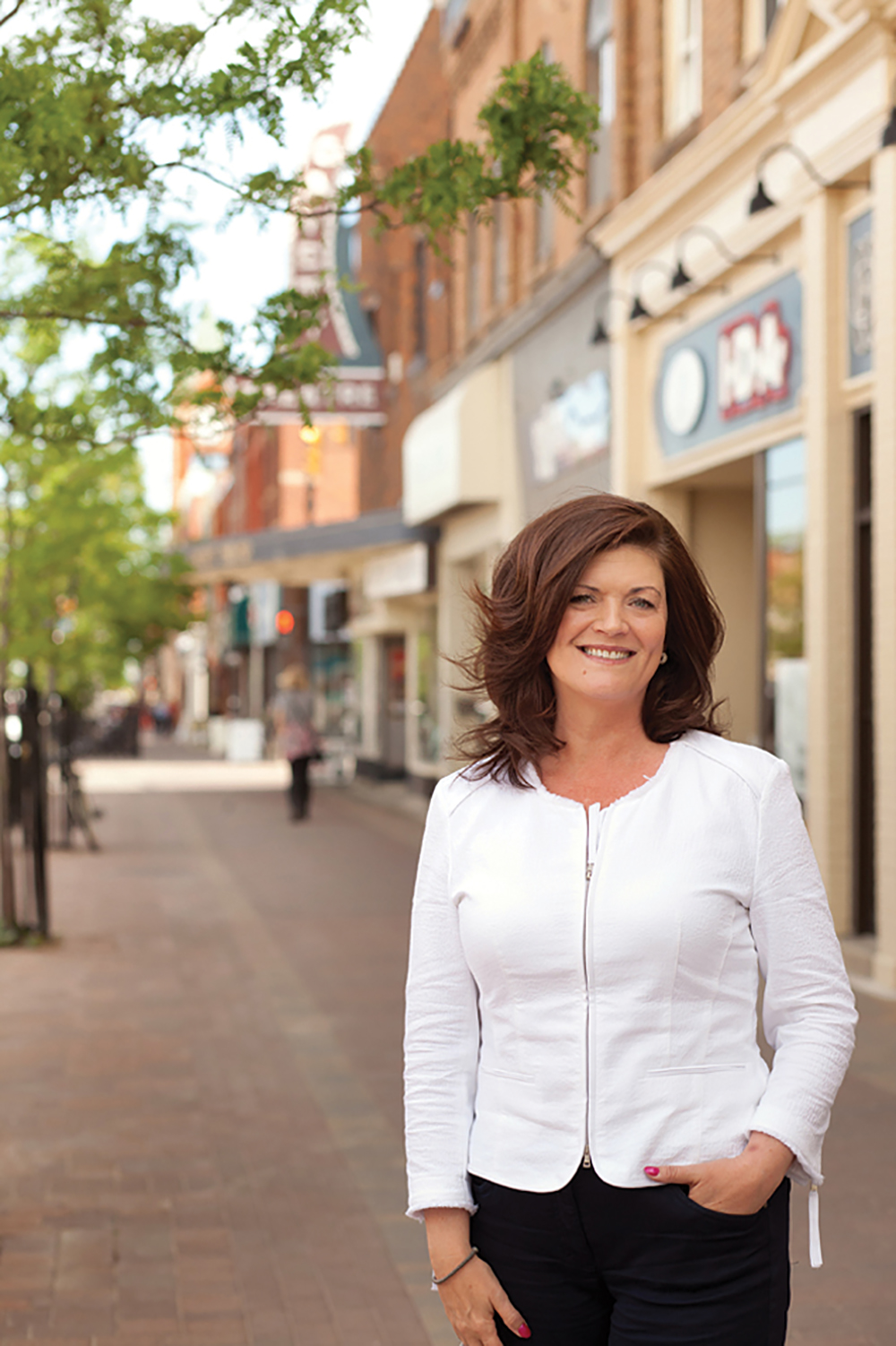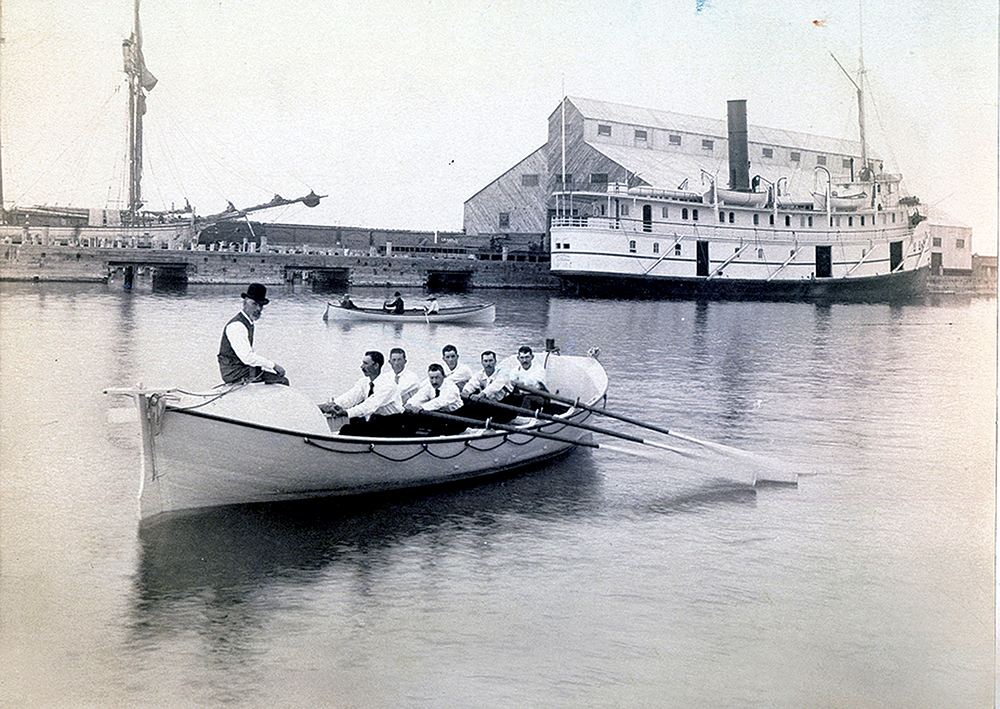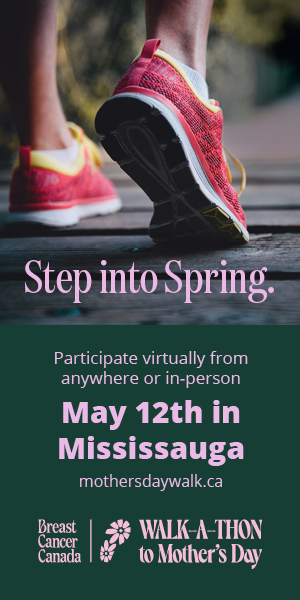The alcohol-free first two hours is one sign that the Everlove Men’s Quarterly Growth Social is not your standard pub night.
by Mathew Channer // Photography by Anya Shor
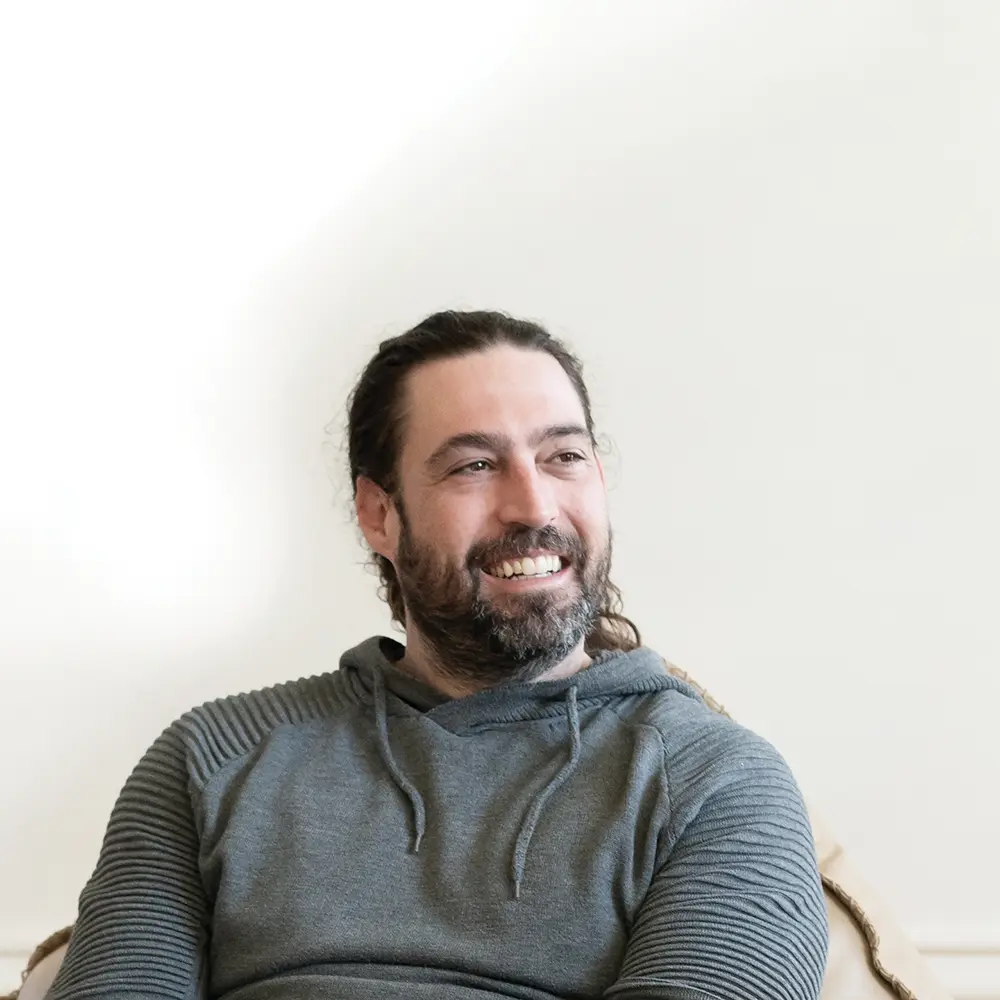
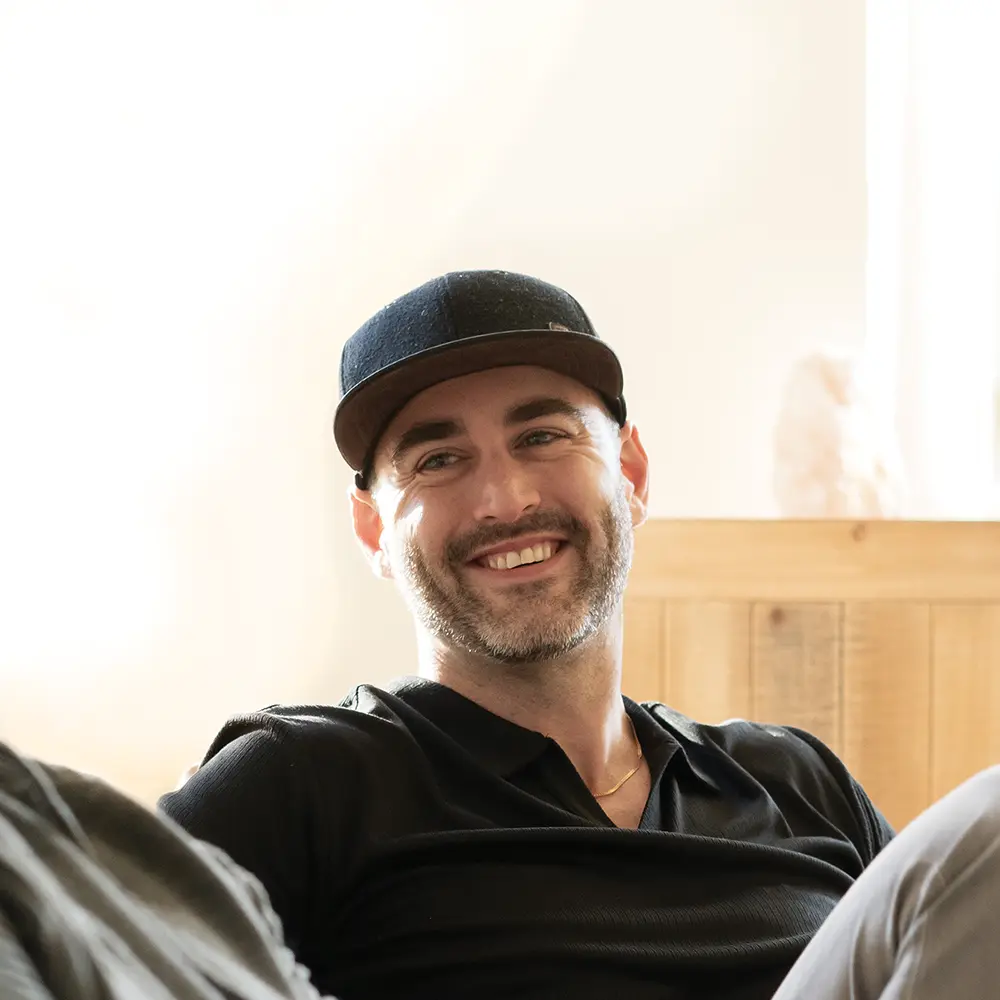
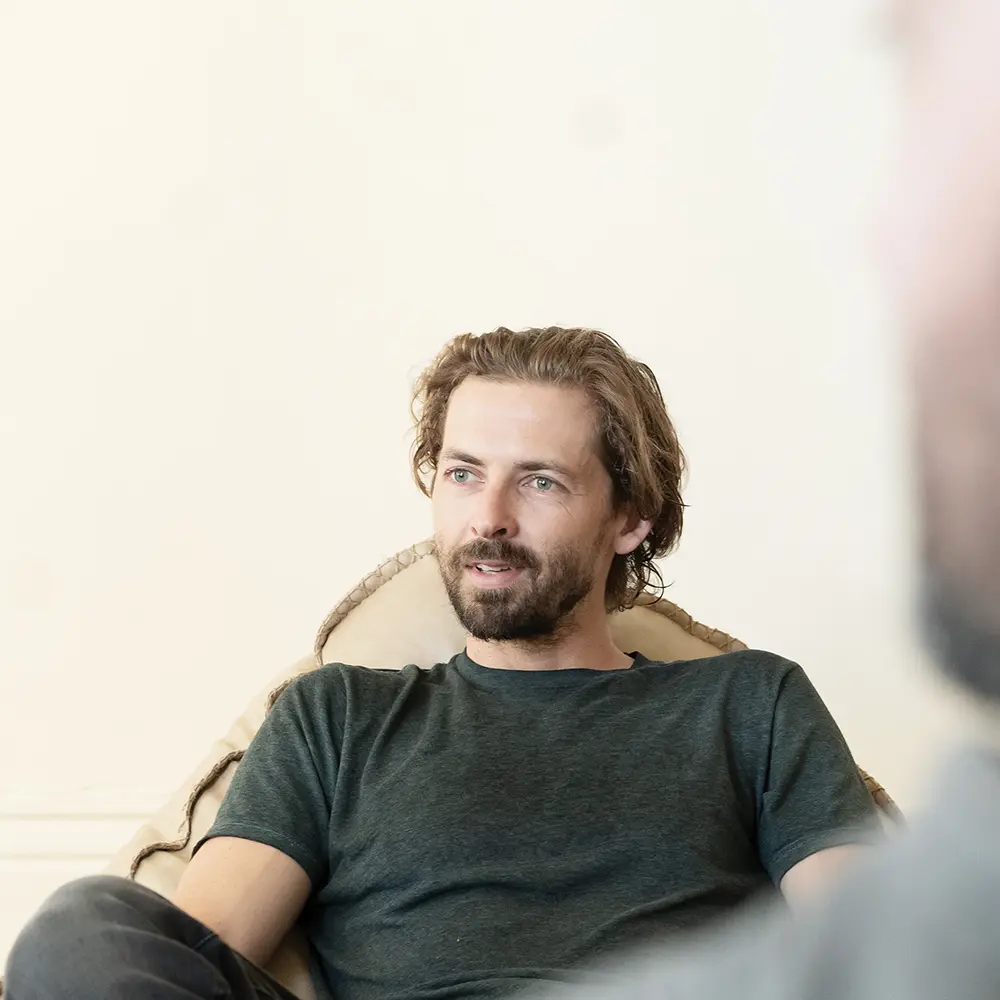

What are you most afraid of in your life right now?
This is just one of the questions asked at the Everlove Men’s Quarterly Growth Social, held at the Black Bellows Brewery in Collingwood on a Thursday evening. There are 40 men present, split into groups of four, where we take turns answering this and similar questions, speaking for one minute at a time while the others listen. Volunteering to go first, I take a deep breath.
It is the part of the night event organiser and Everlove co-owner Dan Fotopoulos calls “emotional speed-dating.” The purpose of this activity is to facilitate deeper and more emotionally-driven conversation between men.
“It’s a space where men can just talk,” Fotopoulos says. “It allows us to relate, see each other, and have authentic conversation. To skip over the shallow stuff.”
Fotopoulos’ exploration into “men’s work” began in 2021. Craving connection, and battling isolation and depression, he began a weekly men’s “growth collective” at his then home in Kitchener. After a COVID-induced pause and a move to Collingwood, what began as an informal Saturday afternoon meet-up has since evolved into a structured weekly gathering of four separate groups of 10 men at Everlove Healing + Yoga’s studio on St. Paul Street. The Quarterly Growth Social is the next evolution of these men’s circles, a larger gathering at a public venue where many men feel more comfortable trying out men’s work for the first time.
Though not my deepest fear, walking into a room full of men I have never met before is admittedly intimidating, especially without beer. (The event is alcohol-free for the first two hours to promote authentic conversation.) But the mood when I arrive is warm, excited, and welcoming. I immediately feel the tension in my chest begin to ease. Yet beneath the easygoing atmosphere, a deeper resonance simmers. Everyone in this room has come with purpose, determination and a willingness to step out of their comfort zone. For many, it is to combat literal isolation and loneliness, a symptom of the rise in post-pandemic remote work. For others, the isolation is not physical but emotional.
“We [men] try to figure out everything ourselves,” says Fotopoulos. “We try to support everyone around us and we never ask for help. But one day it just hits us. Getting men more used to sharing is a pressure release valve. And it can be enough pressure release to avoid
becoming a statistic.”
The statistics Fotopoulos refers to speak for themselves. Approximately one million Canadian men suffer from depression each year, according to the Canadian Men’s Health Foundation. Of the approximately 4,000 suicide deaths in Canada each year, almost 75 percent are men, a startling average of 50 per week. Yet men are far less likely than other genders to utilize mental health services, often due to a stigma that views asking for help as weakness. It’s a stigma that for some will turn deadly. The 2022 Mental Health Commission of Canada highlighted an increased risk of suicide among men who feel expectation or pressure to “uphold masculine norms (like strength, toughness, self-reliance, stoicism).”
This is how Fotopoulos welcomes us this evening, by listing these statistics. It’s a stark and poignant reminder to the men in the room (myself included) that this is far more important than just a simple meet-and-greet. It is a chance to do what many men feel is impossible—to speak truth and be vulnerable. And it’s an opportunity that will arguably save lives. To combat male suicide deaths, the Mental Health Commission of Canada suggests reframing masculinity “to allow for greater expression and recognition of emotion and help-seeking among men.”
Attending an event like the Quarterly Growth Social is one way to make this first step, and it is not as painful as one might assume. Collingwood local Joey Peragine admits he was nervous to sit down in a men’s group. But when he eventually attended his first Quarterly Growth Social, the experience defied his expectations.
“It was really great to see men in the community coming together,” Peragine says. “It was a lot more fun than I imagined it was going to be.”
Yet beneath the easygoing atmosphere, a deeper resonance simmers. Everyone in this room has come with purpose, determination and a willingness to step out of their comfort zone.
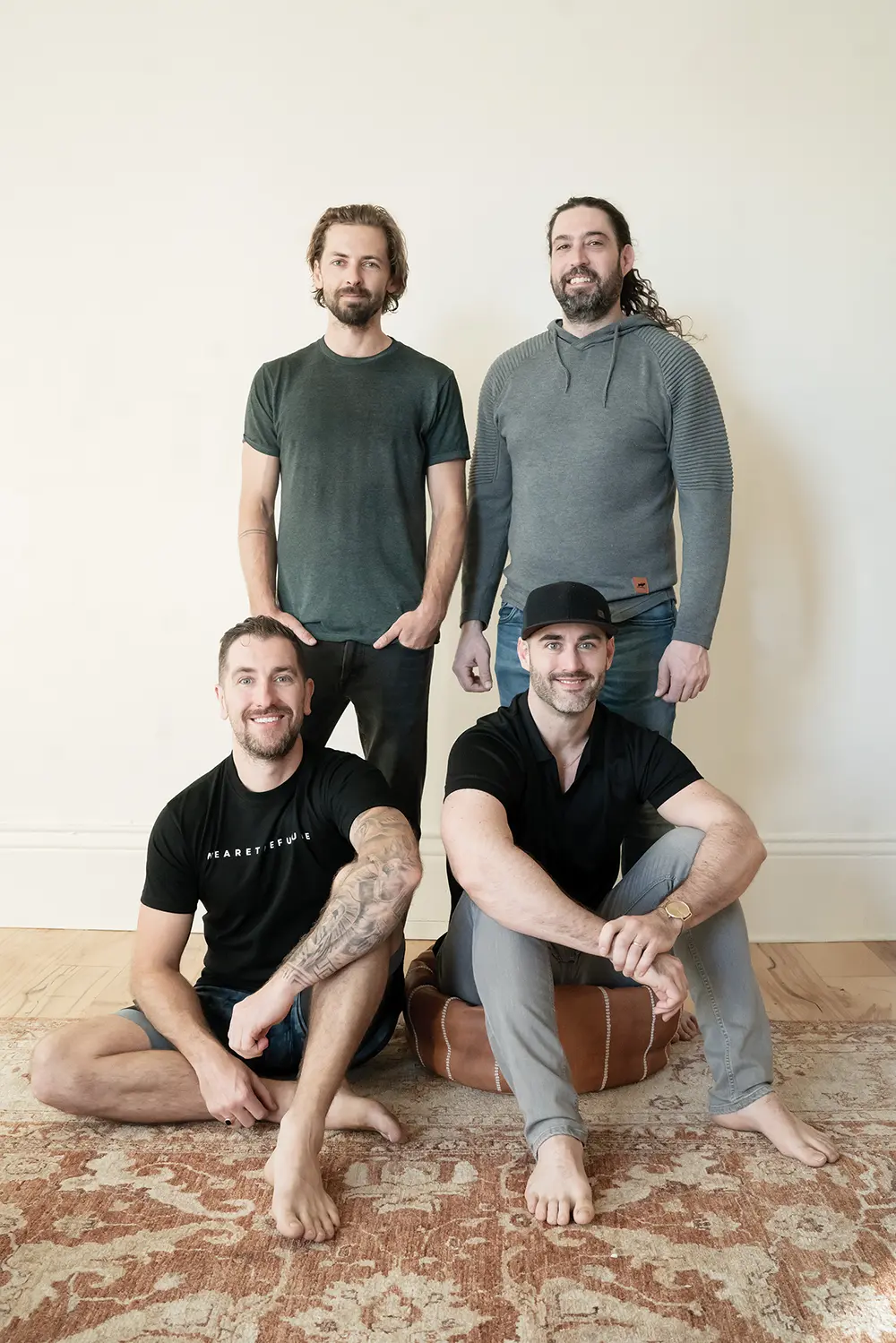
I can empathise with Peragine’s hesitation. As a millennial male, I too have been trained by society, media, and my colonial heritage to internalize my feelings. By the time I hit my early twenties, my idea of masculinity centred around strength, capability, self-dependency and toughness. The men attending the Quarterly Growth Social are working to change these stereotypes by redefining masculinity to champion emotional awareness, connection, vulnerability and community.
“There is a stigma that the feminine energy of nurturing has to be from women, and that’s completely false,” says local business-owner Daniel James, who has attended four quarterly socials. “There is a new wave of deeply compassionate and connected men, who I believe are the future of masculinity.”
James says discovering men’s work is something he is extremely grateful for.
“I feel like I am at a new level in my life because of this,” he says. “There has been so much healing as a result of being honest with myself in front of other men that it really does completely change who you are.”
James is not the only man whose life has improved by simply sitting down with other men and talking. Fotopoulos says he receives consistent, positive feedback, and that many men have told him doing men’s work has changed their life.
“A lot of men have quit their vices, marijuana, alcohol, pornography, as a result,” Fotopoulos says. “A lot of them have found connection and feel less lonely. The Men’s Growth Social has helped to shift from labelling vulnerability as weakness to seeing vulnerability as strength.”
Nor do the positive effects have to stop at the individual. Fotopoulos believes helping men learn to express and understand feelings will allow them to be more emotionally supportive for their loved ones.
“It’s going to make a better marriage. It’s going to lead to more compassion, more understanding and more love. And then the kids are going to witness that. We’re learning to be in our emotions, and we’re also learning to strengthen our own ability to provide a container for people who need it.”
While it would be easy to assume these results could come only after a significant amount of hard work, the truth in many cases is far simpler. Men, like anyone, just want to be seen.
“I was so grateful that I found a space where I could 100 percent be myself,” says James. “If you can just show up and give yourself the opportunity to make connection, you get to discover how similar our struggles are, and it’s so worth the vulnerability to make those connections.”
It is perhaps unsurprising then that men’s work has grown fast in Collingwood and looks set to keep expanding. For Fotopolous, the weekly men’s circle at Everlove and the Quarterly Growth Social at Black Bellows are still in relative infancy. And just as these spaces help others see that “no man can do it alone,” he too recognizes he can only do so much without help.
“This year is the first season we have another man facilitating one of the circles,” Fotopolous says. “I want to go from 40 guys to 100 guys this year, but through other men being leaders in their circles as well.”
What are you most afraid of in your life right now? Two hours earlier, I would have evaded the question. But it’s not hard to talk about my fears when the men I sit with truly want to know. I speak frankly about my deep fear of failure, of being unable to carve my place in this world, ultimately, my fear of insignificance. When I finish, I am met with warm smiles and enthusiastic fist-bumps, and I notice, immediately, that I am a little less afraid.
I came to the Men’s Growth Social with no higher hopes than making a friend or two. But the experience is far more significant. This evening, I am invited to let others in. And I am invited to listen, to be curious about the lives of other men. Ultimately, I learn that the oppressive belief I arrived with, that I must always be strong, that it is just me against the world, is untrue. I will leave knowing it is safe to speak up and say “No, I am not doing ok.”







